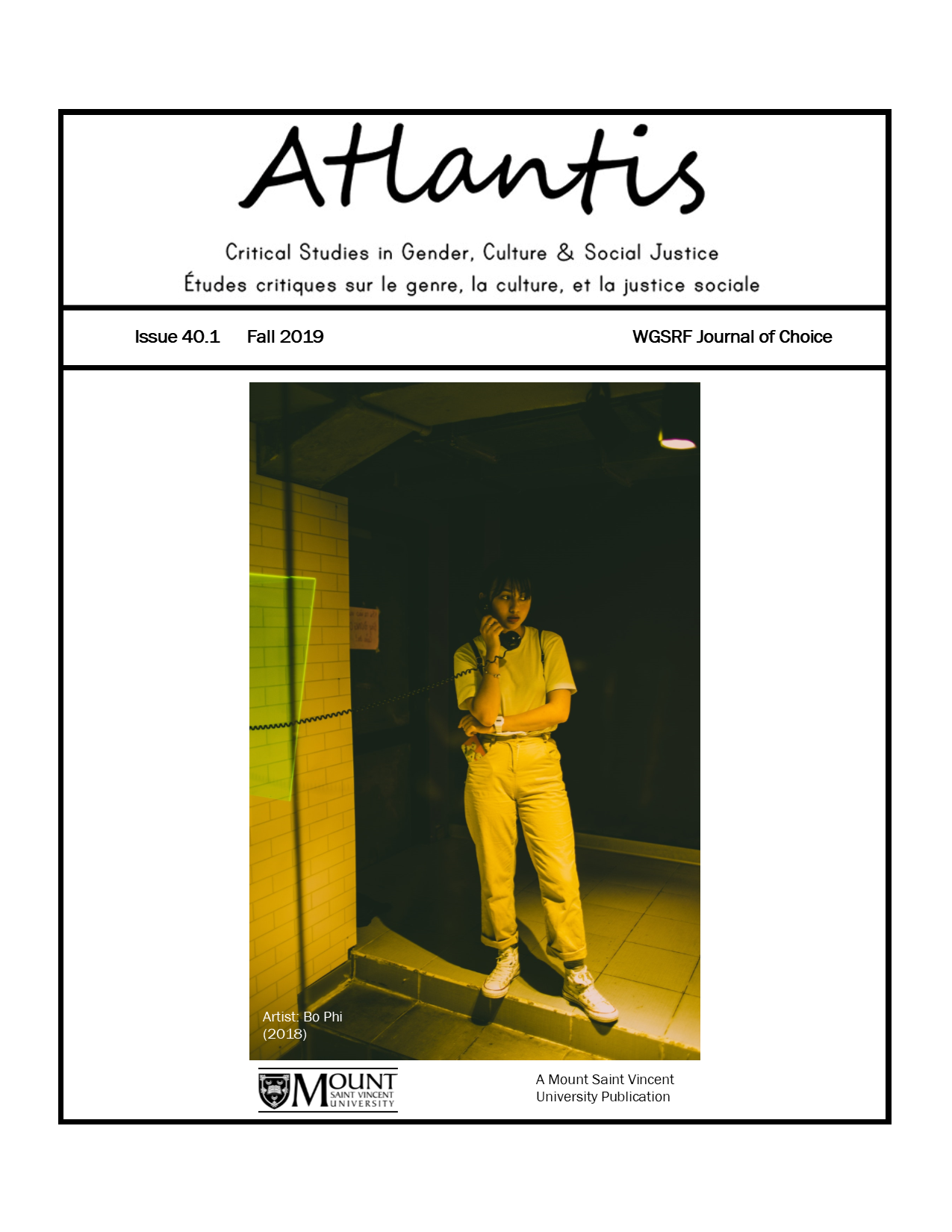Transversal and Postmodern Feminist Praxis in Everyday Politics
Keywords:
transversal feminism, postmodern feminism, praxisAbstract
Feminist praxis is usually a conscious, reflexive, process of moving from theory to application in order to create transformation. We want to expand the scope of feminist praxis, however, to include moments in which feminist theory explains political transformations that may not be deliberate, but that result in a feminist outcome: the pursuit of gender equality through personal and political transformation. This paper uses a dataset of online comments generated after the Supreme Court of Canada decision in R. v. N.S. as a case study, and it sits in conversation with postmodern and transversal feminist theorists, particularly the recent work of Patricia Hill Collins (2017) that builds on Nira Yuval-Davis (1997) and others, to argue that political action is most effective when transversal practice is layered onto intersectional politics; and that, despite Hill Collins’ concern that political practice has yet to move to effective transversalism (2017, 1471), transversal feminist praxis can be found in examples of everyday politics which offer hope for social transformation.
Downloads
Published
Issue
Section
License
Authors who publish with this journal agree to the following terms:
1. Authors retain copyright and grant the journal right of first publication, with the work simultaneously licensed under a Creative Commons Attribution 4.0 International License that allows others to share the work with an acknowledgement of the work's authorship and initial publication in this journal.
2. Authors are aware that articles published in Atlantis are indexed and made available through various scholarly and professional search tools, including but not limited to Erudit.
3. Authors are able to enter into separate, additional contractual arrangements for the non-exclusive distribution of the journal's published version of the work (e.g., post it to an institutional repository or publish it in a book), with an acknowledgement of its initial publication in this journal.
4. Authors are permitted and encouraged to preprint their work, that is, post their work online (e.g., in institutional repositories or on their website) prior to and during the submission process. This can lead to productive exchanges, as well as earlier and greater citation of published work. Read more on preprints here.







